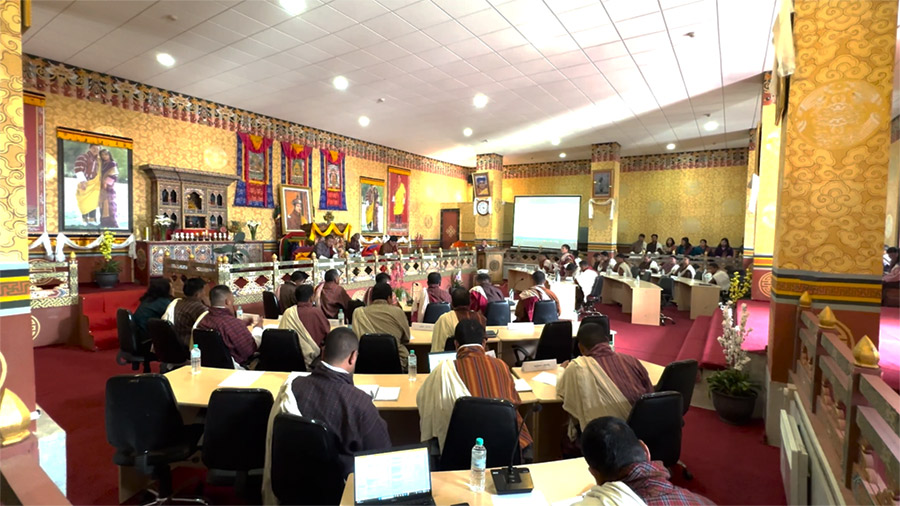
People are already feeling the pinch of the revised land and property tax, which has been substantially increased. But what concerns many more is the process of filing the tax, especially for the uneducated and farmers. Local government leaders of Chhukha raised concerns over the online tax-paying procedure during the recent Dzongkhag Tshogdu.
With the tax revision, people now have to pay their taxes through the Property Tax System using the Bhutan National Digital Identity App.
The local leaders said it is not possible for uneducated individuals to file the tax using the new system. They say even educated people find it difficult to understand the new tax-paying system.
The local government officials added that most people in their gewogs do not have bank accounts, which poses a challenge when taxes have to be paid online.
“Firstly, taxes have been drastically increased, making it difficult for people to pay them on time. Secondly, most people in villages do not have bank accounts, which are required for paying taxes online using banking apps,” said Suk Bdr Tamang, Logchina Mangmi.
“The sudden increase in taxes has left us speechless. People blame us, saying that officials in the gewog are of no use. It would greatly benefit the people if suggestions from the community, through GT and DT, could also be taken into account rather than implementing changes suddenly,” said Kinley Dorji, Geling Gup.
“When it comes to the tax-paying method through NDI, how can our people use it? We are also getting confused. Therefore, I feel it is important for the changes to be user-friendly. They are supposed to make work easier for people,” said Tobgay, Chapchha Gup.
With regard to the concession given to land that are being cultivated, gewog officials said that some land are left fallow because they are not cultivable at all.
“I believe the concession should be extended to all residents in remote villages without differentiation based on cultivation status. Lands in distant areas often remain uncultivated due to genuine reasons. It is not that people do not want to work, but rather that such lands are located far from basic amenities such as water and fencing,” said Khandu Tshering, Bongo Mangmi.
“Taxes are high because they are based on the PAVA rate. Therefore, it would be helpful if the rates could be revisited. While taxing cultivable lands seems reasonable, it is unfair to impose the same tax on lands that are not cultivable,” said Birkha BDR. Rai, Dzongkhag Tshogdu Chairperson.
The House has decided to submit a request to the government to revise the Property Assessment and Valuation Agency, PAVA, compensation rates.
According to a notification from the finance ministry, the PAVA compensation rates were revised in November 2022.
Section 154 of the Land Act of Bhutan 2007 stipulates that the Property Assessment and Valuation Agency shall revise the compensation rates every three years.
Kinley Dem, Chhukha
Edited by Sherub Dorji









